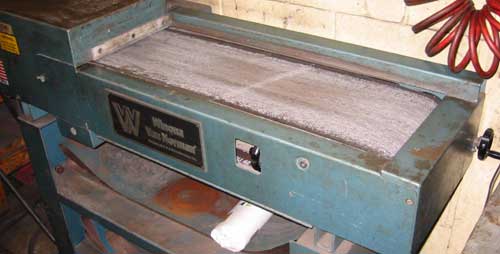
The mark of great art is its ability to move you emotionally. The mark of transcendent art is its ability to reshape the way you view the world. In Hamilton: An American Musical, Lin Manuel-Miranda has not only revolutionized the musical genre, he has also created a deft commentary on the human condition, marriage, and family.
Setting aside the many levels of genius at work (cabinet meetings as rap battles, unreal!), Hamilton has the unique ability to both serve as a source of inspiration and a cautionary tale. Hamilton’s rise from Caribbean squalor to New York squire through sheer force of will (and some good fortune) is a testament to the power of self determination and audacity. It makes one wish to let go of fear and hesitation in order to find out what we are truly capable of. And, much like Hamilton, I have a tendency to never be satisfied, instead letting anxiety and everyday stressors keep me from enjoying what I currently have.
Yet, what really surprised and amazed me when I first listened to the soundtrack was the way it spoke to me as a husband and father. I expected a good story with snappy music and dope rhymes; I didn’t expect a poignant reflection on marriage and parenting.
I have spent a lot of time over the past few weeks trying to understand how a hip-hop musical about an 18th-century dandy could move me towards being a more devoted husband and father. Repeated listens have only continued to amaze and increase my depth of understanding and appreciation for this great piece of pop culture. To the best I can identify, it boils down to a few simple tenets:
“You’ll Blow Us All Away”
The beautiful, light melody of “Dear Theodosia” coupled with Hamilton’s and Burr’s earnest expressions of love and devotion to their newborn son and daughter captures the deep, indescribable emotion I felt a the birth of my own children. Not being the one to carry them during pregnancy, I found myself having a hard time connecting with my two daughters before they were born. It was only after I first set eyes on each of them that I was overcome by all of the feelings of wonder, pride, humility, and purpose so singularly captured in their duet. Hearing this captured in song and story reignites this deep feeling in me and reminds me stop and take in the little ways in which our kids blow us all away.
“Not Throwing Away My Shot”
A large part of the appeal of Hamilton as a character is the passion with which he pursues his dreams and goals. It is this display of bravado and gumption that attracts so many impressive fans and supporters (George Washington, Eliza and Angelica Schuyler, Lafayette) and bonds them to him. While in Hamilton’s case his drive for power and success ends up being a double-edged sword, it is a reminder that life is best lived when in pursuit of all that may be possible. So often I find myself feeling as though, to be the best father and husband I can be, I need to set aside or tamp out my own inspirations. It is Hamilton’s dogged pursuits that attract these characters, and us, to him. Being the best father and husband I can be does not mean complete sacrifice. It also involves modeling for my girls what it means to make the most of the life you are given and find out what you are truly capable of.
“Take a Break”
That being said, one of the strongest feelings I had upon my first listen was one of empathetic regret for Hamilton. Reflecting on his life, I so strongly wished he would have heeded Eliza’s call for him to make his family the center of his world. I often find myself in similar reflection, wondering how much I will regret the time I have spent worrying about everyday minutiae or attending to my own selfish interests (ahem, fantasy sports - I’m looking at you). How harshly will I admonish myself for not focusing on what is truly important - being present in the everyday ins-and-outs of family life? Hamilton’s life serves as reminder of how important it is to balance struggle for the future with soaking in the present.
“Say ‘No’ to This”
My reaction to Hamilton taking up with Mrs. Reynolds (spoiler alert) was not “How could he?!” but “There, but for the grace of God, go I.” I know how susceptible I am to my own demons and how vigilantly I need to fend them off. Witnessing the hurt and destruction he brings upon his family, his wife Eliza in particular, is a strong warning to fight against my own self-destructive temptations as strongly as possible. For it is no longer just about me (and hasn’t been for awhile), it is about all those that love and trust me. They deserve to be kept from harm.
“Who Lives, Who Dies, Who Tells Your Story”
In the end, the strongest message from this epic saga is that, hard as we may try, our legacy is not in our hands. Hamilton fights so hard to try to dictate how he will remembered that he at times loses sight of who will really be his legacy - his family. The lengths with which Eliza and Angelica go to continue the work Hamilton started and to help preserve his legacy filled me with a deep admiration for my own wife and the ways in which she loves and supports me. Such love and dedication from those close to me makes me less concerned with the world knowing my name and more concerned with knowing my friends and family. Maybe then I can truly be satisfied.




